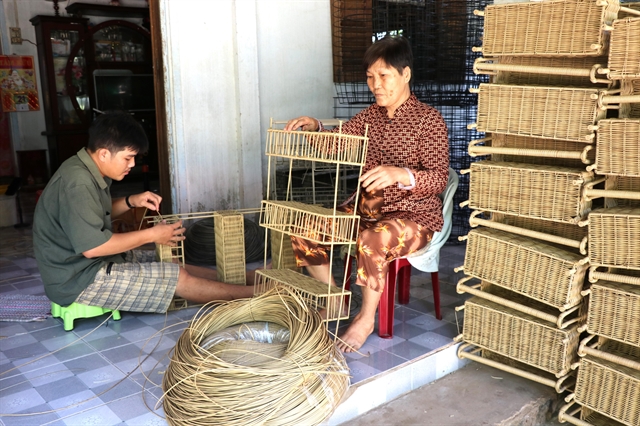 Media-OutReach Newswire
Media-OutReach Newswire

HONG KONG, CHINA - Media OutReach- July 9, 2018 - Cigna Corporation(NYSE:CI) today released the results of its 2018 Cigna 360° Well-Being Survey --Future Assured. The findings, which were tracked over a four yearperiod, show rising awareness of the need to prepare for old age, whichincludes being continually active and financially independent. As a result, peopleare working harder today, and increasingly calling on employers to help inmanaging workplace stress.
The Cigna 360° Well-Being Survey was launched in 2014 with the goalof exploring well-being perceptions and concerns across five key areas ofwell-being - physical, family, social, financial and work. This year's survey isCigna's most global yet, talking to nearly 14,500 people in 23 markets aroundthe world.
The Index -- thecombined scores of the five areas -- dropped 1.1 points overall compared to lastyear's survey, from 62.3 to 61.2 points. With the exception of Singapore, allmarkets surveyed recorded a drop of 1.1 to 3.9 points since last year, withThailand reporting the largest fall. Despite recording the second largest fall,India maintained its place at the head of the index.
Financialwell-being, previously a declining trend, finally stabilized in all markets asrespondents are beginning to feel more positive about their current situation.However, there are increased concerns over social well-being -- people areworking harder at the cost of quality time for friends and hobbies; and physicalwell-being -- quality of sleep, weight and a balanced diet.
Jason Sadler,President, Cigna International Markets, said: "More people are feeling positiveabout their current financial situation and understand the need to prepare forthe future. However, the survey also showed that there is a trade-off as we facehigher workplace stress today. For Cigna, this means we must continue to helpindividuals and organizations gain a better state of well-being. Collectively,if we can help employees deal better with stress, their well-being willimprove."
Stress is a Key Factor in Workplace Wellness
The workplace playsa critical role in health, wellness and planning for a secure future. TheWorkplace Well-being Index increased from 67.5 to 69.1 points over last year. Peoplehave an increasingly positive outlook towards their workplace wellness andrecognize the value of work-life balance. However, stress remains the biggestworkplace issue. Some 15 percent of workers said they are unableto manage stress, with Millennials in the workplace viewing themselves as leastable to cope. Those who say theyare unable to manage stress are less physically fit, less sociable and morelikely to seek professional help and be prescribed medication.
Stress managementpresents a challenge to employers and way for them to improve staff retentionand motivation. Over 50 percent of employees in the survey claim they do notreceive company support in dealing with stress or have a formal workplacewellness program in place. When asked about workplace wellness programs, 73percent of working Millennials agree they are important in choosing between twopotential employers.
More are Geared Up for Old Age
One positivedevelopment revealed by the survey was that 50 percent of respondents claim to beprepared for old age through active aging and financial readiness. However, theyalso believe that insurance alone may not cover all their needs, and plan todip into their savings to help during retirement. In most developed economiesand where public health systems are well regarded, such as China, Hong Kong andTaiwan, people expect to rely on government help for healthcare costs.
About one-third ofrespondents have a fear of not being visible in old age, with social circlesshrinking and mobility becoming an issue. Most respondents, especially in Asia,expect to receive support from their family in old age rather than help from professionalcaregivers. Respondents in Indonesia and Thailand have the largest expectationthat children will take care of the elderly.
The Need for Affordable and Accessible Healthcare
Respondents outside the U.S. showed a preference for private healthcareover public services, but cost is a sobering factor. People choose publichealthcare for the most critical medical procedures. Private healthcare is usedat a higher rate than the public system in the areas of dental services andeye-care.
Data Sharing can Create Better Health
Individuals arealso highly open to health data sharing with third parties (8 out of 10) if itlowers healthcare costs, provides better access to healthcare and enables earlydetection. Next to doctors and government-run health databases, people are opento sharing their health data with insurance companies and communities with similarmedical conditions.
"The findings showthere is an opportunity for the health services and insurance industry to createsolutions that are customized and affordable for each individual. Data sharing isalso an area where we can work together to assure the accessibility andaffordability of healthcare in the future," said Sadler.
"Three of the key pillarsof research we focus on in our Survey -- Aging, Workplace Wellness, andAffordability and Accessibility of Healthcare -- give us better insights andguide us as we deal with macro-economic developments such as an aging and growingmiddle-class population. Our aim is to partner with our customers throughouttheir well-being journey and contribute towards a #Future Assured," continued Sadler.
About Cigna
Cigna Corporation (NYSE:CI)is a global health service company dedicated to helping people improve theirhealth, well-being and sense of security. All products and services areprovided exclusively by or through operating subsidiaries of Cigna Corporation,including Cigna Health and Life Insurance Company, Connecticut General LifeInsurance Company, Life Insurance Company of North America, Cigna LifeInsurance Company of New York, or their affiliates. Such products and servicesinclude an integrated suite of health services, such as medical, dental,behavioral health, pharmacy, vision, supplemental benefits, and other relatedproducts including group life, accident and disability insurance. Cignamaintains sales capability in over 30 countries and jurisdictions, and has morethan 95 million customer relationships throughout the world. To learn moreabout Cigna®, including links to follow us on Facebook or Twitter, visitwww.cigna.com. For more information about Cigna's proposed acquisition of ExpressScripts, please visit www.advancinghealthcare.com.




